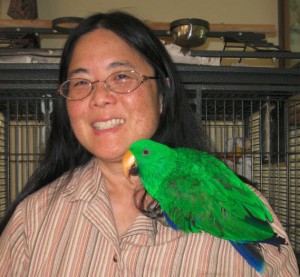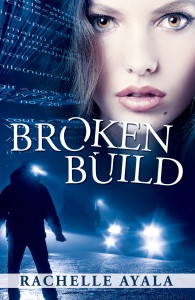Are you experiencing a second book slump? My friend, colleague and talented author Rachelle Ayala has some great ideas to pull you out of it! Take it away Rachelle!
The first book, like a first baby, is a magical and thrilling experience. Whether you’ve announced it to your family, or secretly tapped the keys on your laptop, the beginning was full of wonderful firsts. From the first line to the first critique partner, to the first finished draft and the first customer. Everything was new and exciting. The first 5-star review! The first 1-star. The first interview and the first royalty check.
Expectations have been set and now you eagerly, or maybe reluctantly, begin book #2. Here are five ways to avoid the dreaded sophomore slump or the paralysis that can creep into the process of releasing the second book.
1. Divorce your first book. The first book was a process of discovery. You’ve lived in your first book for years, perfecting it and polishing it until the characters and scenes became a part of your life. You were able to explore different angles, perhaps take the plot in an unforeseen way. Without any deadlines, you became immersed in your characters’ lives. Now, with a second book, you find it hard to see how you can become as close or attached to the characters and plot as you did before.
As harsh as it might seem, the best thing for you to do is to divorce your characters or slay them in your mind. They are done with. Gone. There is nothing you can do to change their outcome. They’ve gone to that happy land across the great divide. The same holds true to the plot of your first book. Yes, you might have a better ending, or a more clever twist. Let it go.
Even if you are writing a series, the static ending of the first book must not impinge on the life of your second book. The most important is to let the second book of the series breathe on its own, and that means giving it a fresh start independent of the first book. Take it in a new direction by forgetting the first book.
2. Stop looking over your shoulder. Now that you’ve published, you are keenly aware of such things as sales ranks, release cycles, and what other authors are doing. Perhaps you’ve joined a writer’s group to share successes and support each other in marketing and sales. Someone in your group pushes out a new book, another writer reached a new ranking, and a third one wrote five thousand words a day and is finished with her next draft.
Take a deep breath. You’re not in competition with your fellow writers. The writing business is a marathon, not a sprint. Think of how much time you took to develop the characters of your first book, to become embedded into the setting, to spin the plot. Do not shortchange the second book by speed-dating it out the door before it is ready. Remember, everyone has his or her own pace. Nurture yours and be happy for those around you. They have their good days and bad, and so do you.
3. Push aside procrastination. When you wrote your first book, you were happily carefree from responsibilities such as marketing, social networking and managing the business side of writing. Your mind was wrapped around the intricacies of scene development and your thorniest problems were how to get out of a plot hole or ensuring enough emotion in a critical scene.
With the second book, unfortunately, distractions abound. You’re busy with blog tours, interviews, tweeting and engaging your readers. Marketing such as giveaways and book signing eat up your time. A day can quickly go by, and another, then a week where you have not touched nor handled your second book, much less given a thought to the characters or heard from them, for that matter!
I’m not good at practicing what I’m about to preach, especially since I love social networking, emailing and online chatting. But, IF you’re going to have a second book, you must force yourself to shut off the Internet, sit in front of your laptop or pad of paper and write!
4. Bury Expectations. Ah, the monster of high expectations. Now that your first book is out and perhaps receiving rave or not so rave reviews, you feel the heightened pressure of making your second book better than the first. Perhaps readers are eagerly waiting, or reviewers are panning your book. Either way, you are determined not to make the same mistakes of your first book.
Your first book was neither as great or as horrible as you think. Some readers who loved your first book will hate your second book. Maybe some others might love it better. You cannot control people’s responses to your books. Yes, the pressure is higher if you’re especially successful. People might be breathing down your neck to read your next book, or maybe they are waiting for you to fail. Perhaps you feel that competitors are jealously nipping at your heels while fans are worried whether you can deliver. Yes, even positive expectations can produce anxiety. But tough noogies. You must ignore these expectations and work on what you can control, your second book.
5. Write for Yourself. You’ve read the reviews, both good and bad, and been inundated with well-meaning advice. You know that Christians hate sex scenes, but that’s all your characters seem to want to do. Your topic is about a sensitive racial, religious, or social issue. And horrors, you wonder what would happen if either your father’s golfing buddies or your mother-in-law’s yoga group were to read your book. Your husband tells you to write sci-fi, and your son says nobody wants to read about a loser (he meant your character, but you can’t help thinking he’s talking about the author). Now that word is out among your non-writing family and friends that you’re an author, everyone has suddenly become a writing critic.
While you can’t bury yourself in an igloo and hibernate, you can remind yourself that you’re the author and your characters will damn well do as they please, not what your mother wants, or your best critique partner suggests, or even the all holy genre rules demand.
Every writer does need feedback. But it should be taken on your terms, not someone else’s. Your book is your vision.
Some practical steps on how to receive feedback without paralysis are: 1) resist the urge to talk about your unformed book. There’s a reason God tucks a baby inside the mother’s womb for nine months so he/she can develop in privacy. 2) Write the first draft as if no one will ever see it. Tell yourself you will toss it all or that it will no doubt be completely revised. 3) Politely think for every person who gives you unsolicited advice that they should go ahead and write their own book. Who knows? They might have the next blockbuster. 4) When you’re ready, encourage your critique partners to hit you between the eyes with everything they don’t like about your book. Let it all sink in, but do not change anything. Read and absorb their crits and let it fallow or fester. 5) Work on your next revision without looking at crits. The changes you make are now yours, even if it had originally been suggested by someone else. The fact that you incorporated it organically, rather than looked through a checklist of who-said-what meant that the final product is yours. You will be stronger and more assured that you took the right direction, but most importantly, you own the story and you were true to yourself.
So get out there and swing for the fences. You can and will successfully finish your second book and avoid the sophomore slump. I’ve heard there’s a third book bounce. So every step you take to push out your second book makes you that much closer to the nirvana of book number three.
What about you? Have you finished a book and are now working on a second book? Do you feel differently about your second book? Please leave a comment.
Rachelle Ayala recently published her second novel, Broken Build (Silicon Valley Romantic Suspense). It is available at Amazon.
Rachelle Ayala’s Blog: http://www.rachelleayala.com
Facebook: http://www.facebook.com/rachelleayalawriter
Twitter: http://twitter.com/AyalaRachelle













October 14th, 2012 at 10:09 am
Great post, excellent advice that I will really take on board and adhere to. Thank you for sharing this
October 14th, 2012 at 1:00 pm
Dear Bonnie,
This was an amazing guest post, and I loved it so much that Rachelle Ayala took the time to give us aspiring writers so much awesome tips and advice. I think she is an amazing writer and I love her books. This post on How to avoid the second book slump is so insightful! Kudos to you!
Syl Stein
October 15th, 2012 at 12:45 am
This advice couldn’t have come at a better time. I’m just about to start work on my second book – sequel to my first novel – while still basking in the success(?) of #1.
Will flag this post in my favourites so I can come back to it and get my head screwed back on properly when I hit the second book slump.
October 15th, 2012 at 6:12 pm
I’m in a slightly different position, on Book seven, but it’s the second book in a series, and this advice was spot-on for me – trying to forget the first in the series and write this as a totally new book – thanks for that!
I also need to remember that there are people who loved the first book and hated all the rest, but that is their choice and I can’t affect that. Off to stop procrastinating and do some writing now!
October 16th, 2012 at 5:04 am
Great advice here! I wrote five manuscripts back to back and then researched what to do with them! Not something I’d suggest anyone else try, it’s been a huge learning curve. It is hard to let your first baby take second place once you publish your second, but you have to let go!
October 16th, 2012 at 5:06 am
Sound advice! I began writing by penning five manuscripts back to back, THEN I found out what the next step in the process was – not something I’d recommend. The first book will always be special, but I totally agree you have to move on. Learning fast comes with being a writer!
October 17th, 2012 at 12:14 pm
I’m so happy I stumbled upon this post… I’m currently two thirds of the way through my second novel and nerves are hindering my process!
You’re given me such peace of mind and enthusiasm to continue – thank you!
Fab post..
October 18th, 2012 at 2:55 pm
So glad others are feeling the same things I am. I’m trying not to look at sales and reviews of my first two books so I can immerse myself into my third book. I already love my characters but I keep getting distracted. I need to jump back into my little writing pond and stop looking around.